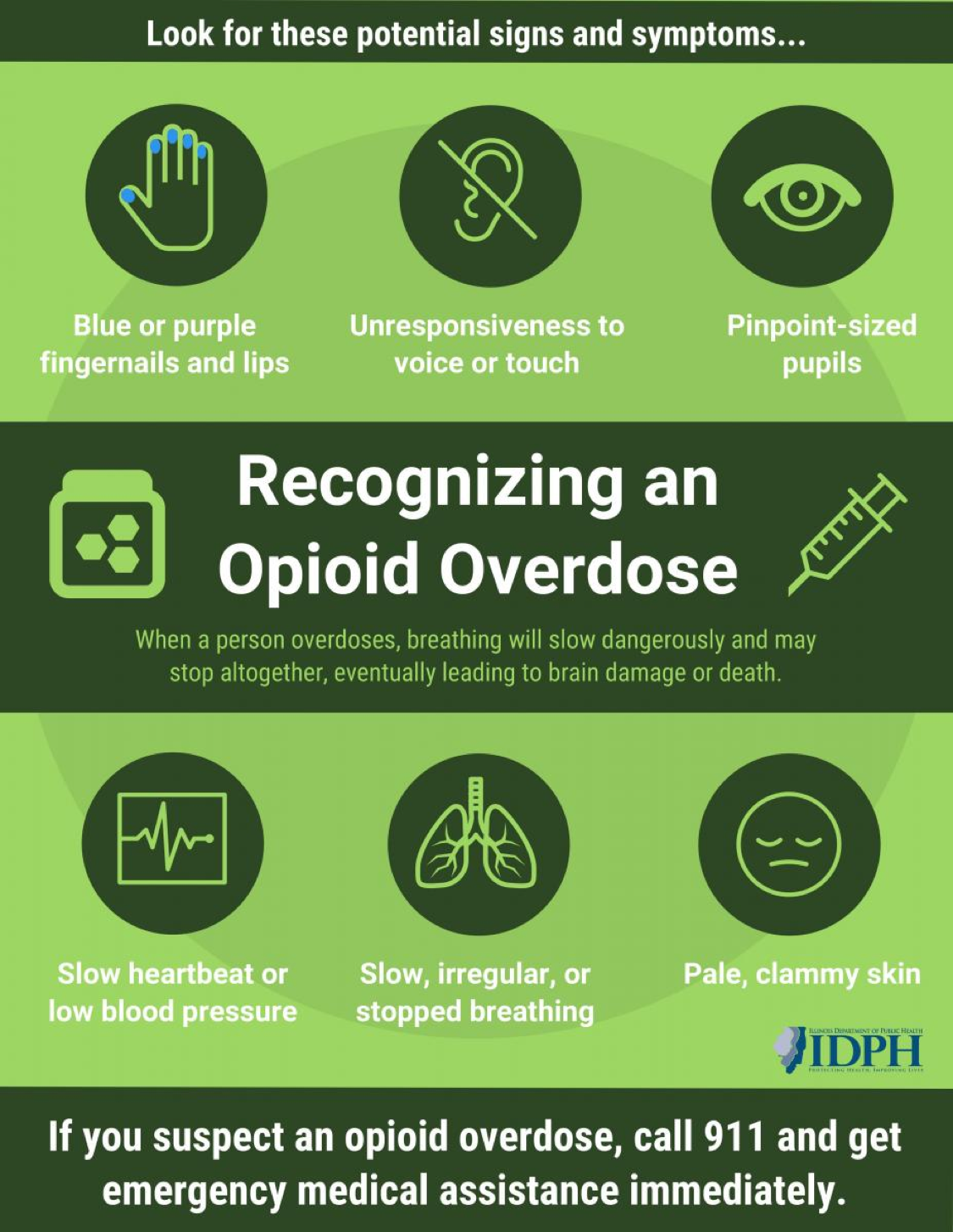Signs of an Opioid Overdose

An opioid overdose occurs when an individual has taken too much of a drug, regardless of whether or not it was legally prescribed or if it was an illegal drug. Opioids affect the part of the brain that regulates breathing, when opioid levels are too high in the body, breathing can slow down to dangerous levels or the person could stop breathing altogether.
The following signs may indicate an overdose situation:
- The person is unresponsive and limp and not responsive to sternal rub
- The person is awake but unable to talk
- The person’s breathing is slow or erratic or the individual is not breathing
- The person’s pulse is slow or erratic or there is no pulse
- The person’s skin is pale gray or blue, especially around the fingernails and lips
- The person is making deep, slow snoring, choking or gurgling sounds
- The person’s pupils are pinpoint
Common Risk Factors for an Opioid Overdose
Overdoses can happen to anyone who abuses an opioid or accidentally takes too much. However, there are several other common risk factors that greatly increase the chances of an overdose. The most common risk factors are listed below:
- Using alone
- Taking an opioid while using other drugs, especially alcohol, sedatives, and cocaine
- Previous overdose
- Resuming the use of an opioid after a period of non-use, this could occur after an individual serves time in jail or exits a rehab program
- Mode of administration (Smoking and IV use are riskier)
- Patients on very high doses of opioid medication (not all problems are due to street drugs or problem patients); even patients who are monitored correctly may overdose.
- Accidentally taking more than one dose of a prescribed opioid, this happens more frequently in elderly persons who do not have assistance with managing their medications.
- People abusing an opioid for the first time may be inclined to take a higher dose due to peer pressure, particularly those who are younger and more easily influenced.
What should I do if I witness an overdose, or I’m unsure that an overdose is occurring?
- Call 911 immediately. Do not delay in calling 911, even if you are unsure that what you are witnessing is an overdose
- Support the persons breathing
- Administer naloxone (Narcan) if you have it
- Lay the person on their side once they have resumed breathing
- Stay with the overdosed person until help has arrived
For more information on how to manage an opioid overdose go to:
